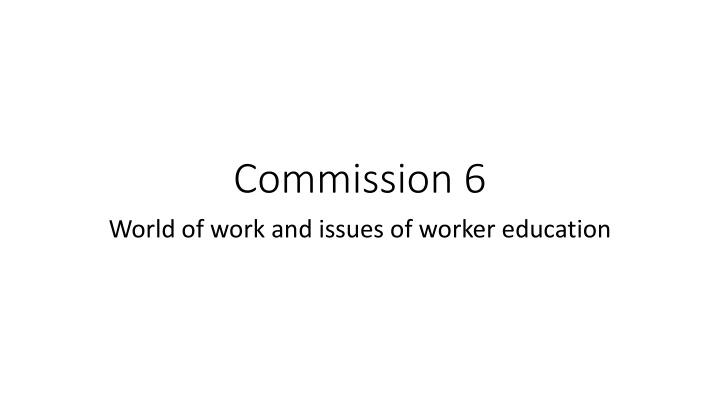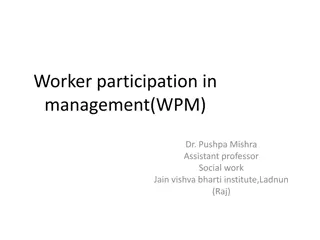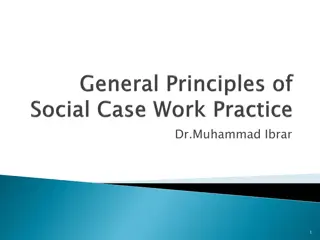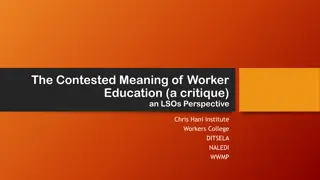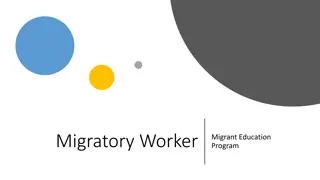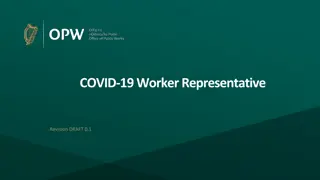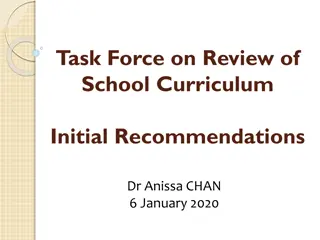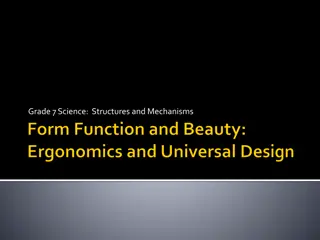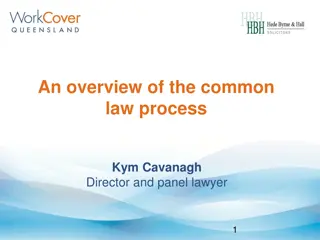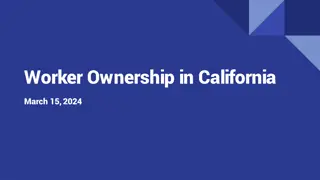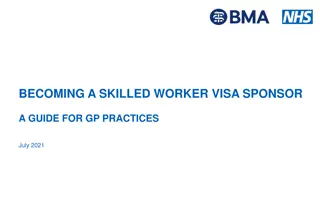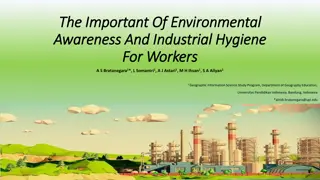Challenges and Recommendations for Worker Education in the Changing World of Work
Current challenges faced by workers in the evolving world of work, including technological advancements, informalization, and lack of employer support for education. Discover recommendations to enhance worker education, promote worker unity, and address trade union issues.
Download Presentation

Please find below an Image/Link to download the presentation.
The content on the website is provided AS IS for your information and personal use only. It may not be sold, licensed, or shared on other websites without obtaining consent from the author.If you encounter any issues during the download, it is possible that the publisher has removed the file from their server.
You are allowed to download the files provided on this website for personal or commercial use, subject to the condition that they are used lawfully. All files are the property of their respective owners.
The content on the website is provided AS IS for your information and personal use only. It may not be sold, licensed, or shared on other websites without obtaining consent from the author.
E N D
Presentation Transcript
Commission 6 World of work and issues of worker education
1. Questions 2. Identify and discuss the current challenges facing workers in the world of work (including those described above). 3. How doe we assert a working-class agenda in response to the challenge of neo liberal workplace restructuring? 4. Identify the implications of workplace of workplace restructuring for the content, form and delivery of worker education. 5. What role can worker education play in responding to these challenges 6. How do we assert a working-class agenda in relations to skills development? 7. How do we envisage the future of trade unions in the light of the changing nature of work? 8. What new organising strategies and organisational forms are appropriate to organise vulnerable and informal workers.
1. Challenges identified 1. The destructive role played by technology when implemented for the purposes of increasing exploitation needs to be halted. The working class must be encouraged to engage with the technologies and determine its socially useful application. Towards ensuring wider access, the expensive broadband costs must be reduced and provided as a public good for the benefit of all and advance our march to socialism. 2. The fear of 4th industrial brings to world of work significant insecurity. Workers control must be asserted to ensure that the benefits of the new technologies make work safer and less demanding. 3. Informalisation and a-typical employment is reducing the possibilities of inclusive learning and also opportunities for Trade Union expansion. As a result more workers remain unorganised and therefore are becoming more vulnerable. 4. More in job training for young workers are required together with support for graduates entering the job market 5. While Employers are not prepared to fund the reskilling and worker education, upskilling of employees are not taken serious and top management become the core beneficiaries of the upskilling by employers. 6. Replacement of employees through the use of technology and costs as such transferred to the consumer creating contradiction within the working class 7. Role of employers and the consciousness of workers 8. The effects of the current economic to worker development 9. Economic structural challenges and spatial misdemeanour 10. Structural disparities resulting in a section unemployable 11. Trade union movement has neglected the basics of trade unionism especially working class solidarity 12. Some trade unions appear afraid of using technology to reach the vulnerable and young workers
1. Recommendations 2. Workers education content and curriculum required and must assist in ensuring decent work for all workers 3. ICTs must be utilised to create both political and ideological consciousness about the neo Liberal capitalist agenda which led to casualisation, and outsourcing and the entire informalisation of work 4. The curriculum content and programme should be worker controlled and mass based to address the challenges faced within trade union movement 5. Worker education should achieve worker unity and reduce competition within and between the trade union movement 6. Campaigns in relation to expand access to broadband which helps ensure connectivity as a public good and universally available 7. Formalisation of the RPL programme and its implementation 8. Guard against misalignment of worker education and training which prevents us achieving our collective desire to advance the course of our class struggle to build socialism
